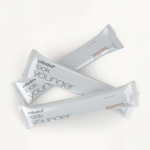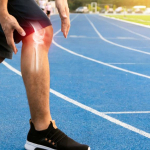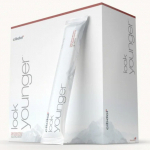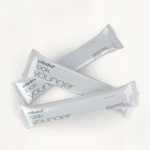Does anything reverse aging skin?
Published:
Categories: CollagenAging is inevitable, but premature skin aging doesn't have to be. There are steps you can take to reverse skin aging and reduce wrinkles, restoring a more youthful complexion.
Contents:
- How Does Skin Age? Understanding the Aging Process
- Effective Anti-Aging Strategies Backed by Science
- Turn Back the Clock on Skin Aging
-
Frequently Asked Questions
- How can I reverse wrinkles on my face?
- What is the best anti-aging skin care routine?
- How can I get rid of age spots?
- What is the best collagen supplement for anti-aging?
- How can I tighten my skin naturally?
- When should I start using anti-aging products?
- Can I reverse aging naturally?
- What ingredients should I avoid for aging skin?
- When should I consider cosmetic procedures like Botox or fillers?
- Resources used to write this article
Skin aging is a complex biological process influenced by many factors. With advanced skincare technology and scientific research on anti-aging, it is possible to rejuvenate and protect your skin to minimize signs of aging.
In this article, you'll learn how the skin ages and scientifically-proven methods that dermatologists recommend to reverse skin aging and maintain a youthful glow.
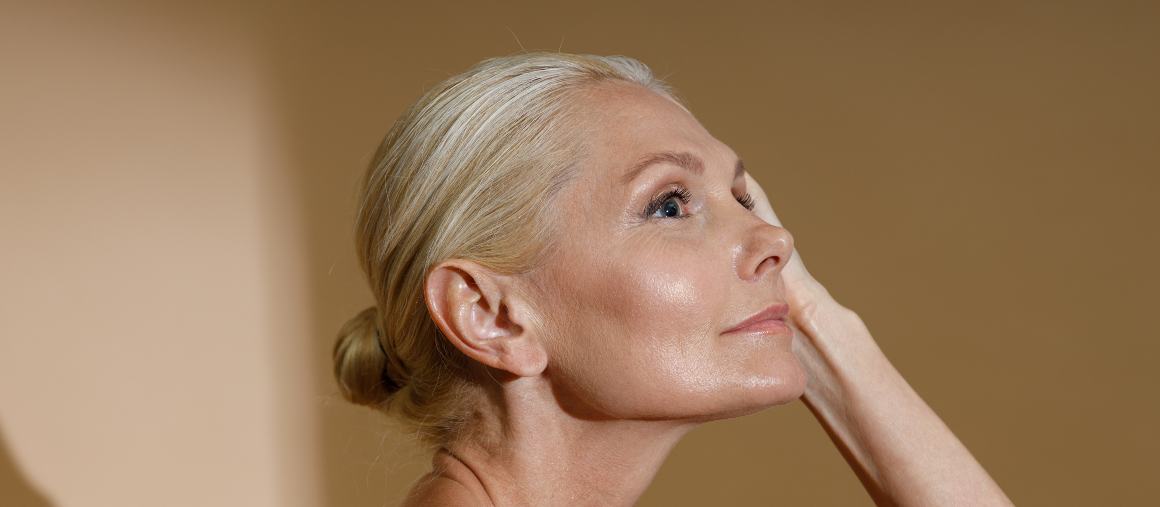
How Does Skin Age? Understanding the Aging Process
To understand how to reverse skin aging, you first need to know how it happens in the first place.
The skin is made up of three layers - the epidermis, dermis, and hypodermis. The epidermis is the outermost layer, while the innermost hypodermis consists of subcutaneous fat. In between is the dermis, which contains collagen, elastin, and extrafibrillar matrix.
These skin structures give it strength, elasticity, and that plump, smooth appearance. However, as we get older, the skin goes through changes that affect its youthful look:
Decline of Collagen and Elastin Fibers
Collagen provides structure, while elastin gives skin its snap-back ability. From our mid-20s onwards, collagen production declines, and existing collagen starts breaking down. Elastin also begins fragmenting.
This causes skin to lose elasticity and firmness. It starts becoming thinner, drier, and more prone to wrinkling.
Loss of Fat and Muscle Tone
The hypodermis starts decreasing in thickness. We begin losing facial fat and muscle tone. This leads to sagging skin and hollowness under the eyes, cheeks, and around the mouth. Nasolabial folds and marionette lines become more pronounced.
Impaired Skin Barrier Function
The top epidermal layer acts as a protective barrier against environmental damage. With aging, this barrier function weakens, making skin more vulnerable to irritation. Trans-epidermal water loss also increases, reducing moisture.
Pigmentation Changes
Areas of darker pigmentation like age spots may appear, caused by years of sun exposure. An uneven complexion can also develop due to the uneven distribution of melanin.
Blood Vessel and Bone Changes
Dilation of blood vessels leads to spider veins on the nose, cheeks, and legs. With bone loss, particularly in the cheeks, midface hollowing occurs, contributing to an aged appearance.
Effective Anti-Aging Strategies Backed by Science
Aging is determined by many intrinsic and extrinsic factors. While intrinsic aging is biological and natural, around 80% of skin aging is estimated to be from extrinsic sources like sun exposure.
This means healthy lifestyle choices and proper skincare can significantly influence how fast your skin ages. Here are dermatologist-recommended anti-aging tips proven to rejuvenate skin:
1. Use Broad Spectrum Sunscreen Every Day
Sun exposure is the number one cause of skin aging. UVA/UVB radiation damages skin cells, destroying collagen and accelerating wrinkles. It also causes pigmentation changes and increases skin cancer risk.
- Applying broad spectrum SPF 30 sunscreen daily is essential. It protects against both UVA and UVB rays. Look for water-resistant sunscreen for about 80 minutes of protection even with sweating or swimming.
- Reapply sunscreen every 2 hours when outdoors. Wear protective clothing like hats and sunglasses as well. Avoid peak sun hours between 10am to 2pm.
2. Cleanse and Moisturize for Younger-Looking Skin
- Gentle cleansing helps remove dirt, oil, and impurities without stripping your skin. Use lukewarm water and avoid rubbing or excessive scrubbing.
- Moisturizing traps water in your skin, plumping it up and reducing the appearance of fine lines and wrinkles. Look for hydrating ingredients like hyaluronic acid, glycerin, ceramides, and shea butter.
- For anti-aging benefits, use moisturizers with antioxidants like vitamin C and E, resveratrol, and green tea. These neutralize free radicals from UV and pollution damage.
3. Use Retinoids to Boost Collagen
Retinoids or retinol are vitamin A derivatives proven to reduce wrinkles, spots, and sun damage. As one of the most researched anti-aging ingredients, it has strong clinical evidence showing it:
- Stimulates collagen production, reducing fine lines and wrinkles
- Repairs sun damage by smoothing skin texture and tone
- Unclogs pores and increases skin cell turnover for a youthful glow
Start slowly with over-the-counter retinol creams of 0.5% to build tolerance. You can also get higher strength prescription retinoids from your dermatologist. Use every other day at first, then slowly increase frequency based on your skin’s tolerance.
4. Apply Antioxidant Serums for Added Protection
Antioxidants are like soldiers that protect your skin. They neutralize free radicals and oxidative damage which accelerate aging. Research shows specific antioxidants applied topically can rejuvenate aged skin:
- Vitamin C - Boosts collagen production and evens out skin tone. Look for L-ascorbic acid serums between 10-20%.
- Vitamin E - Repairs sun damage and reduces inflammation. Often combined with vitamin C.
- Coenzyme Q10 - Energizes skin cells and reduces wrinkles. Studies used dosages of 0.3%.
- Green Tea Extract - Soothes skin and contains catechins with anti-aging effects. Look for 50-75% catechin content.
- Resveratrol - Found in red grapes, it protects against environmental stressors. 1-2% concentration is ideal.
Apply antioxidant serums once or twice daily after cleansing. They work synergistically with retinoids to enhance anti-aging effects.
5. Get More Collagen with Supplements
Our natural collagen production drops starting in our 20s. Taking oral collagen supplements can help counteract this:
- Collagen peptides have been found to increase skin elasticity, hydration, and dermal collagen density. Look for hydrolyzed collagen powder or pills made from fish, eggs, or other food sources.
- In studies, dosages of 2.5-10 grams of collagen peptides taken for 8-24 weeks showed anti-aging benefits. Higher dosages like 10 grams appeared most effective.
- Pair your collagen supplement with vitamin C for best absorption. Vitamin C helps convert collagen into a usable form.
- You can also boost collagen levels through diet by eating vitamin C-rich fruits, bone broth, eggs, citrus fruits, leafy greens, and berries.
6. Try Skin Rejuvenation Therapies
Non-surgical skin rejuvenation therapies offered by dermatologists and estheticians can also reverse skin aging. These include:
- Chemical peels - Lightly remove the skin’s damaged outer layers to reveal newer cells. Improves tone, texture, lines and acne scarring.
- Microdermabrasion - Gently sands the skin to exfoliate. Reduces acne scars, wrinkles, sun spots, and enlarged pores.
- Laser skin resurfacing - Uses targeted beams to boost collagen, smooth skin, and treat pigmentation. More dramatic results than chemical peels.
- Dermal fillers - Soft tissue fillers like hyaluronic acid fill in facial folds and plump up areas that have lost volume. Provides a temporary anti-aging effect.
- Microneedling - Creates microscopic punctures using tiny needles to stimulate collagen and elastin. Reduces scars and wrinkles.
These treatments can cost hundreds of dollars per session. Give your skin about 2 weeks to recover afterwards before resuming your usual skincare routine.
7. Consult a Dermatologist for Individualized Options
For the best anti-aging results, meet a board-certified dermatologist. They can assess your skin, risks, and needs to create a personalized treatment plan.
Your dermatologist may recommend:
- Prescription-strength retinoids, alpha hydroxy acids, antioxidants, and peptides
- In-office treatments like Botox, chemical peels, laser skin resurfacing, dermal fillers
- Medications to improve pigmentation like hydroquinone
- Monitoring of suspicious moles to prevent skin cancer
With professional help, you can target different signs of aging. Customized clinical treatments also tend to produce longer-lasting rejuvenation than over-the-counter products alone.
Turn Back the Clock on Skin Aging
While we can’t stop aging, we can certainly slow it down. Protecting your skin from sunlight, keeping it nourished, and using proven anti-aging ingredients and therapies can lead to remarkable improvements in your skin’s appearance and health.
Reverse your skin’s biological clock by:
- Wearing SPF 30 sunscreen
- Using retinoids, vitamin C, peptides
- Taking oral collagen
- Getting chemical peels, microneedling
- Seeing a dermatologist
A comprehensive approach addresses all factors that cause skin to age. With diligent care, it is possible to minimize wrinkles, spots, sagging and other aging signs. Your skin will look more youthful well into your later decades.
Frequently Asked Questions
How can I reverse wrinkles on my face?
Using retinoids is one of the most effective ways to reduce wrinkles. Apply over-the-counter retinol cream or get a prescription retinoid from your dermatologist. Start slowly and use every other day before increasing frequency. Combining retinoids with antioxidants like vitamin C provides added wrinkle-fighting benefits. Non-invasive procedures like laser resurfacing and dermal fillers can also smooth out facial wrinkles.
What is the best anti-aging skin care routine?
The essential steps are cleansing, sun protection, moisturizing, and using anti-aging serums. Cleanse morning and night. Apply a broad spectrum SPF 30 sunscreen daily. Use a moisturizer with hydrating ingredients and antioxidants. In the evening, apply a serum with retinol or vitamin C before moisturizer. Exfoliate 1-2 times per week to remove dead skin cells. You can also add collagen supplements. See a dermatologist yearly.
How can I get rid of age spots?
Topical creams with hydroquinone (2-4%) can lighten age spots with several months of use. Retinoids also help fade spots by increasing skin cell turnover. Chemical peels and laser resurfacing remove the top layers of skin to reveal fresher cells. Always wear sunscreen to prevent new dark spots from forming.
What is the best collagen supplement for anti-aging?
Look for a hydrolyzed collagen peptide powder or capsules from reputable brands. Collagen sourced from fish, eggs, or chicken provides similar benefits. Aim for around 5-10 grams daily. Pair it with vitamin C which helps your body absorb and utilize the collagen. Taking collagen for at least 2-3 months is needed to see anti-aging effects.
How can I tighten my skin naturally?
A healthy diet with antioxidants can protect your skin from within. Stay well-hydrated and use moisturizers with hyaluronic acid. Apply firming creams with ingredients like green tea, peptides, and caffeine. Dry brushing boosts circulation and collagen. The most effective tightening treatments are laser skin resurfacing and ultrasound skin tightening done by a dermatologist.
When should I start using anti-aging products?
In your 20s, start using sunscreen daily along with a basic skincare routine. In your 30s, incorporate antioxidants like vitamin C serums. Retinoids can be added to prevent fine lines and stimulate collagen. Consider collagen supplements and periodic chemical peels or microdermabrasion. More invasive tightening treatments may be needed in your 40s and beyond as sagging increases. See your dermatologist to tailor an anti-aging plan.
Can I reverse aging naturally?
While natural approaches alone cannot fully reverse aging, they can complement clinical treatments:
- Protect skin from the sun, don't smoke, and avoid repetitive facial expressions
- Follow an antioxidant-rich diet with fruits, vegetables, omega-3s, and collagen building foods
- Stay hydrated and use moisturizer
- Do facial exercises to tone muscles
- Manage stress through yoga, meditation, journaling
- Get sufficient sleep and avoid toxins like pollution when possible
Adopting a healthy lifestyle provides a foundation for a more youthful appearance. Natural methods support medical anti-aging therapies.
What ingredients should I avoid for aging skin?
Steer clear of products with fragrance, sulfate cleansers, and alcohol which can irritate. Avoid harsh scrubs and chemical exfoliants which may damage your skin’s barrier. Limit AHAs to 1-2 times per week. Hydroquinone for dark spots should not be used long-term. Read ingredient lists carefully and patch test products first. If your skin reacts badly, discontinue use. See your dermatologist for guidance.
When should I consider cosmetic procedures like Botox or fillers?
Non-invasive anti-aging procedures can sometimes help roll back the clock. Talk to a board-certified dermatologist or facial plastic surgeon. Botox can prevent dynamic wrinkles if used in your 30s and beyond. Dermal fillers add volume, smoothing out static wrinkles. Discuss the potential benefits and risks at your age to determine if procedures could help you achieve your desired aesthetic goals.
Resources used to write this article
Farage, M. A., Miller, K. W., Elsner, P., & Maibach, H. I. (2008). Intrinsic and extrinsic factors in skin aging: a review. International Journal of Cosmetic Science, 30(2), 87–95. https://doi.org/10.1111/j.1468-2494.2007.00415.x
American Academy of Dermatology. (n.d.). How to reverse signs of skin aging. https://www.aad.org/public/everyday-care/skin-care-secrets/anti-aging/reverse-signs-of-skin-aging
Skin Cancer Foundation. (2021). Photoaging. https://www.skincancer.org/skin-cancer-information/prevention/are-you-at-risk/photoaging
Zussman, J., & Ahdout, J. (2021). Vitamin C serum benefits for face, skin, and hair. Healthline. https://www.healthline.com/health/beauty-skin-care/vitamin-c-serum-benefits
Papakonstantinou, E., Roth, M., & Karakiulakis, G. (2012). Hyaluronic acid: A key molecule in skin aging. Dermato-endocrinology, 4(3), 253–258. https://doi.org/10.4161/derm.21923
Harvard Health Publishing. (2019). Do collagen supplements really reduce signs of aging? https://www.health.harvard.edu/blog/do-collagen-supplements-really-reduce-signs-of-aging-2019090416904
Mukherjee, S., Date, A., Patravale, V., Korting, H. C., Roeder, A., & Weindl, G. (2006). Retinoids in the treatment of skin aging: an overview of clinical efficacy and safety. Clinical interventions in aging, 1(4), 327–348. https://doi.org/10.2147/ciia.2006.1.4.327
American Academy of Dermatology. (n.d.). Skin rejuvenation treatments. https://www.aad.org/public/cosmetic/rejuvenation
Sign up to our newsletter and enjoy 10% off one order
YOU MIGHT ALSO LIKE
Post related products
-
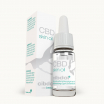
-
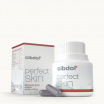
-

Look Younger CIBD0073










